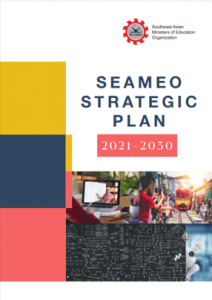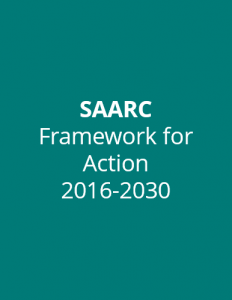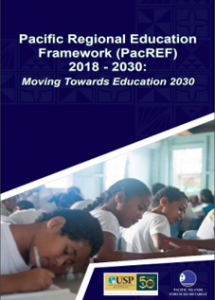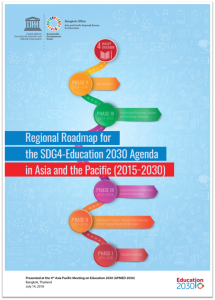The Asia Pacific Regional Thematic Working Group (TWG) Education 2030+, co-chaired by UNESCO Bangkok and UNICEF, serves as the regional coordination mechanism and the Asia-Pacific Meeting on Education 2030 (APMED2030) will serve as the regional consultation platform for the exchange of knowledge, best practices and support to countries in all aspects of the implementation and monitoring of SDG4-Education 2030.
The regional coordination mechanism also brings together the following sub-regional organizations: South East Asia Ministers of Education Organization (SEAMEO), South Asia Association for Regional Cooperation (SAARC), and the Pacific Islands Forum (PIF). Each of these organizations has its own education sector strategies aligned with SDG4-Education 2030 and they also participate in broader regional level efforts.
The UIS has been closely working with Asia Pacific Technical Working group- Education 2030+ in developing its Regional Roadmap (2015-2030) and providing technical support in implementing monitoring components of the roadmap.
Given the large geographical spread of the Asia-Pacific region, sub-regional organizations play a significant role in the efficient coordination of regional-level actions and contribute to the implementation of the 3 thematic areas of the regional roadmap: advocacy, capacity building, and monitoring, within their respective sub-regional contexts.
UNESCO Bangkok and the secretariat of the regional Thematic Working Group Education2030+ represents the Asia-Pacific region and ensures regular communication and information exchange with the global coordination mechanism guided by the SDG Education 2030 Global Steering Committee.
Three regional organizations have developed their own education framework integrating SDG4 goals and targets, and providing detail strategies and programmes to achieve SDG4 in their respective sub regions.
| Southeast Asian Ministers of Education Organization (SEAMEO) | South Asian Association for Regional Cooperation (SAARC) | Pacific Islands Forum Secretariat (PIFS) |
 |
 |
 |
| SEAMEO Strategic Plan 2021-2030 | SAARC Framework for Action 2016-2030 (available soon) | Pacific Regional Education Framework (PacREF) 2018-2030: Moving Towards Education 2030 |
To meet the need for setting up meaningful benchmarks for SDG 4 and the Asia and Pacific regional frameworks in the monitoring of SDG 4, the UIS has partnered with UNESCO Bangkok and Learning and Education 2030+ Networking Group (formerly known as Regional Thematic Working Group on Education 2030+) in establishing regional benchmarks for the region.
The outcomes of this collaborative work are presented in the Summary Report of Asia and Pacific Regional Technical Consultations on Regional Benchmarks for SDG 4.
The support Member States and sub-regional bodies in implementing SDG4 in their respective countries and sub-regions, the Asia-Pacific Technical Working Group - Education 2030+, with the support of the UIS, developed the Regional Roadmap for the SDG 4-Education 2030 Agenda in Asia-Pacific (2015-2030), consisting of strategies and actions for implementing SDG 4 in the region.
The UIS also provides technical support in implementing monitoring components of the roadmap:
- Advocacy and preparation (consultation with partners) – October-November 2020
- Technical team formation – November 2020
- Sub regional Consultations- March-April 2021
- South East Asia, 24 March 2021 (Presentation - forthcoming)
- East Asia, 30 March 2021 (Presentation - forthcoming)
- Pacific, 1 April 2021 (Presentation - forthcoming)
- South and West Asia, 6 April 2021 (Presentation - forthcoming)
- Central Asia, 29 April 2021 (Presentation - forthcoming)
The Asia-Pacific Meeting on Education 2030 (APMED 2030) serves as the regional consultation platform for the exchange of knowledge, best practices and support to countries in all aspects of the implementation and monitoring of SDG4-Education 2030.
Meetings and recommendations
- 1st Asia-Pacific Meeting on Education 2030, 25-27 November 2015
- 2nd Asia-Pacific Meeting on Education 2030, 16-18 November 2016
- Recommendations (forthcoming)
- 3rd Asia-Pacific Meeting on Education 2030, 4-7 July 2017
- 4th Asia-Pacific Meeting on Education 2030, 12-13 July 2018
- 5th Asia-Pacific Meeting on Education 2030, 1-4 October 2019
The UNESCO Bangkok and UNICEF East Asia and Pacific (EAPRO) have been coordinating the Asia Pacific regional benchmarks processes under the TWG - Education 2030+.
Benchmarks will be set at the subregional level to account for the vast geographical, economical and education development differences across the region. Three regional organizations are leading this effort, under the overall coordination of TWG - Education 2030+:
- South Asian Association for Regional Cooperation (SAARC) for South and West Asia
- Southeast Asian Ministers of Education Organization (SEAMEO) and Association of Southeast Asian Nations (ASEAN) for the South East Asia
- Pacific Community (SPC/EQAP) for the Pacific Islansa
The UIS has also partnered with the UNESCO Beijing Office for East Asia consultations and the UNESCO Almaty Office for Central Asian consultation processes.
Forthcoming
Benchmarks for SDG 4 Indicators: Methodological note
- Available in English
Aligning SDG4 with Regional Frameworks in Asia and the Pacific
| SDG Targets | South Asian Association for Regional Cooperation (SAARC) Framework for Action for Education 2030 |
| 4.1 Basic Education | G1: Access and out-of-school |
| 4.2 Early Childhood Education | G2: Equity and inclusion |
| 4.3 TVET / Higher Education | G5: Skills for life and work |
| 4.4 Skills for Work | G6: Potential of ICTs |
| 4.5 Equity | G2:Equity and inclusion |
| G3: Gender equality | |
| 4.6 Adult Literacy and Numeracy | |
| 4.7 Sustainable Development | G11: Lifelong learning opportunities |
| 4.a Learning Environment | G4: Learning outcomes and quality education |
| 4.b Scholarships | G12: Partnership and collaboration |
| 4.c Teachers | G7: Teacher development programmes |
| SDG Targets | Southeast Asia Ministers of Education Organization (SEAMEO) Action Agenda for the SEAMEO 7 Priority Areas |
| 4.1 Basic Education | P2: Barriers to inclusion |
| 4.2 Early Childhood Education | P1: Early childhood care and education |
| 4.3 TVET / Higher Education | P4: Promoting TVET |
| 4.4 Skills for Work | P4: Promoting TVET |
| 4.5 Equity | P2: Barriers to inclusion |
| 4.6 Adult Literacy and Numeracy | |
| 4.7 Sustainable Development | P7: 21st century curriculum |
| 4.a Learning Environment | P3: Resilience in emergencies |
| 4.b Scholarships | P6: Higher education and research |
| 4.c Teachers | P5: Revitalizing teacher education |
| SDG Targets | Association of Southeast Asian Nations (ASEAN) The ASEAN Work Plan on Education 2016-2020 |
| 4.1 Basic Education | SG2: Quality and access to all |
| 4.2 Early Childhood Education | |
| 4.3 TVET / Higher Education | SG4: TVET and lifelong learning |
| PA 4.1: TVET for employment and sustainable development | |
| 4.4 Skills for Work | SG3: ICT |
| PA 3.1: Educational software development and online instructional design | |
| PA 3.2: Digital learning through ICT | |
| 4.5 Equity | SG2: Quality and access to all |
| PA 2.1: Inclusive schools | |
| 4.6 Adult Literacy and Numeracy | |
| 4.7 Sustainable Development | SG5: Education for sustainable development |
| PA 5.1: Collaboration on ESD | |
| 4.a Learning Environment | SG2: Quality and access to all |
| PA 2.2: Quality through quality-focused interventions | |
| 4.b Scholarships | |
| 4.c Teachers | SG8: Teachers, academics and other key stakeholders |
| PA 8.1: Education Exchange Week | |
| PA 8.2: Teachers' competencies |
| SDG Targets | Pacific Islands Forum (PIF) Pacific Regional Education Framework (PacREF) |
| 4.1 Basic Education | SOW2: Participation and success rates |
| 4.2 Early Childhood Education | LP3: Youngest learners prepared for formal schooling |
| 4.3 TVET / Higher Education | LP1: Appropriate resourcing for TVET |
| SOW2: Participation and success rates | |
| 4.4 Skills for Work | LP4: Linked pathways between levels of schooling and beyond |
| 4.5 Equity | QR3: Inclusive rights based, promoting gender equality, flexible and responsive to innovation and change, adaptable to new learning opportunities |
| 4.6 Adult Literacy and Numeracy | SOW1: Literacy and numeracy at all levels of education |
| 4.7 Sustainable Development | SOW3: Programmes strengthening cognitive, non cognitive and social skills in young |
| 4.a Learning Environment | QR4: Quality learning environment |
| 4.b Scholarships | |
| 4.c Teachers | Teaching Profession: 1. Qualified and skilled teachers, 2. New skills and knowledge, and 3. Confidence in teachers and schools |
